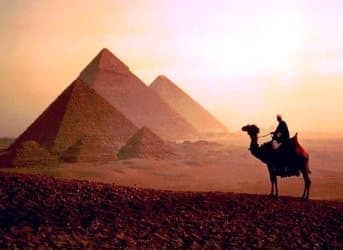What the US wants in Egypt is what it failed to attain in Iraq—stability of the kind that assumes US control over the situation.
In Iraq’s case, this meant control over one of the world’s biggest oil resources. In Egypt’s case it means a smooth ride for American foreign investment, a wide reach over one of the busiest shipping zones in the world and an assurance of peace with Israel.
Since the failure in Iraq, the US has had a difficult time implementing its strategy of selective stability, and America was woefully wrong-footed by the events of the Arab Spring. Nowhere was this more visible that in Egypt at the time of the first “revolution” that ousted long-time leader Hosni Mubarak.
Recent history tells us that the US and other Western powers have been inclined to support radical Islamist groups more than political Islam, or even secular centers of powers because these latter two have enough foundation to create truly independent states that are more difficult to control.
In Egypt, the Muslim Brotherhood led by Mohamed Morsi—who is now being held by Egypt’s military—was a failed experiment in political Islam backed by Qatar much to the despair of Saudi Arabia and the United Arab Emirates (UAE). Washington is happy to see the Muslim Brotherhood fail and Morsi go under. Had this particular political Islam experiment worked, it would have been much too independent.
Related article: Egypt’s New Government Works to Improve Supplies of Oil and Bread
But now Washington finds itself in a tricky position. It needs to make sure that any new Egypt is friendly with Israel, but it also needs to make sure that it caters to Saudi Arabia’s vision of a new Egypt. So far, so good--minus the stability factor.
So while the US is keen to show the Muslim Brotherhood the back door, it is also keen to make sure that a new secular government that is capable of true independence does not rise from the ashes. Washington wants “stability”, but a stability that works in its favor; a stability that includes leverage.
Strong secular governments are the most dangerous to US foreign policy strategy because they are the most difficult to control.
This is the foundation for interpreting the confusing messages sent by Washington to Cairo over the past week. As diplomats shuttle back and forth, the US is demanding that the military release Morsi and include the Muslim Brotherhood in talks for a new government.
This is also behind the dawdling over Washington’s decision on whether to admit that the military takeover in Egypt on 3 July was actually a “coup”. If they start calling it a “coup” they can’t continue to funnel military aid to the country. They’ve decided now that it wasn’t a coup, per se, and that military aid can continue, but now strings are being attached, and they include the Muslim Brotherhood and Morsi.
Related article: Waiting on Egypt for Oil & Gas Investment
It would be wrong to think that a new Egyptian government, if it is to be at all stable or lasting, could avoid including the Muslim Brotherhood. The crisis in Egypt will not end until its new leaders find a way to include the supporters of political Islam without killing or arresting their key leaders and fomenting more violence.
And while this fits nicely into the religious-like Western views of democracy, there is nothing altruistic about it. Mubarak was a dream leader for Washington, but there won’t be another Mubarak—the people won’t have it. True democracy would be much less favorable, and the more combative it ends up being, the more divisive the parties, the easier to control and less independent Egypt can become.
By. Charles Kennedy of Oilprice.com


















